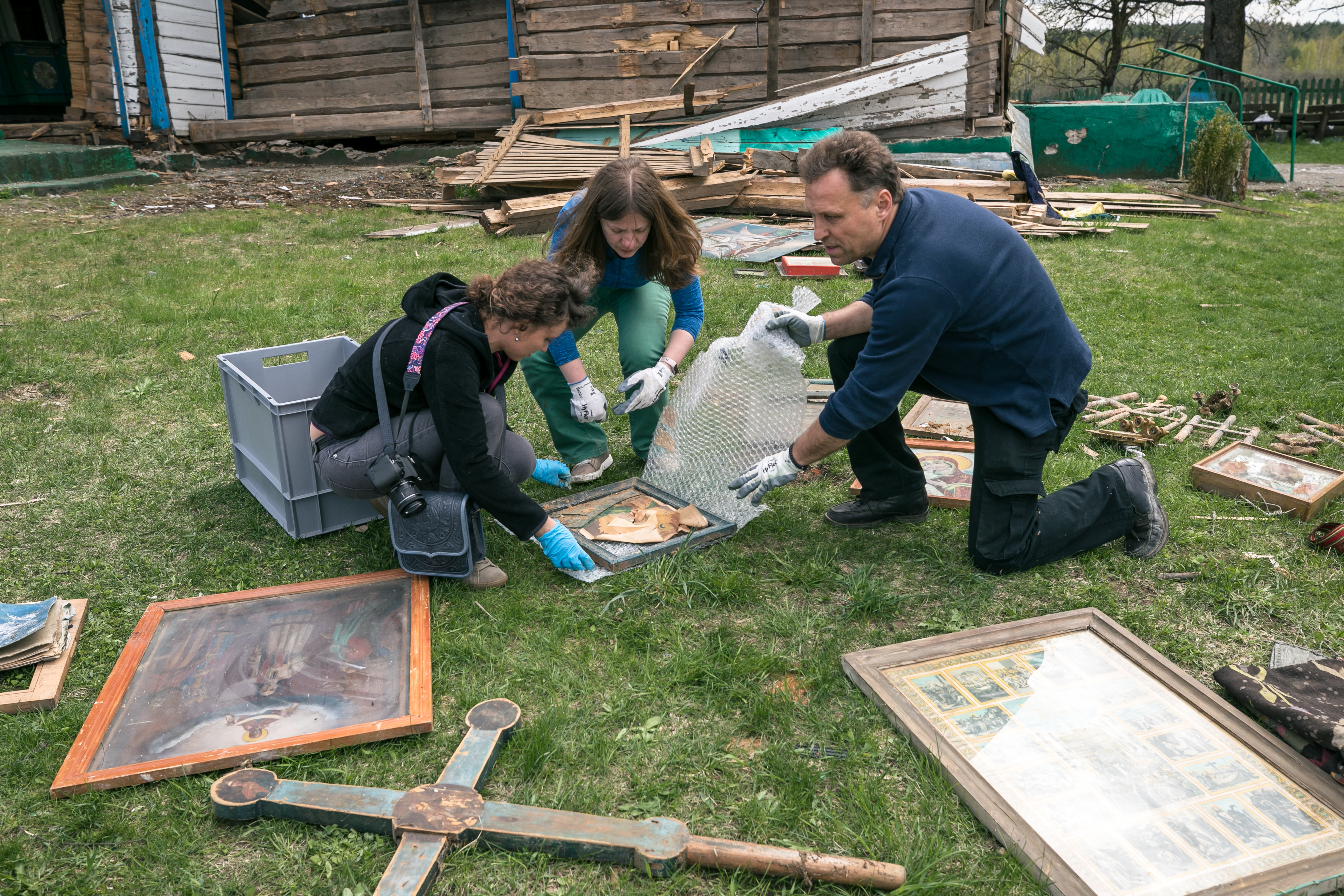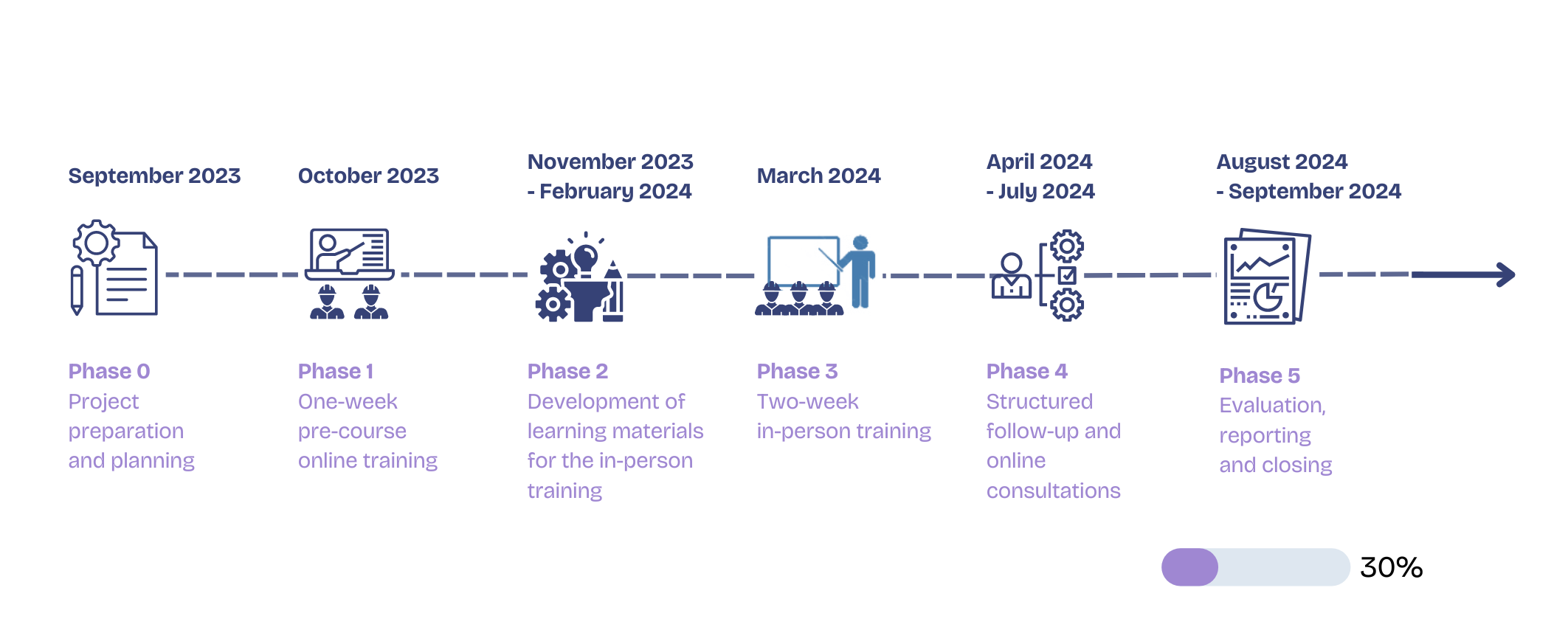Generously supported by the European Commission Directorate-General of Education, Youth, Sport and Culture (ECA)
Local communities face significant challenges in protecting their endangered heritage due to armed conflicts and resulting humanitarian crises. Yet, amid turmoil and anguish, the affected communities strive to safeguard their cultural heritage, as it provides a connection with the past, a sense of identity and hope for the future.
Through the 12-month project, “Enhancing Capacities in Ukraine for Cultural Heritage First Aid and Recovery Planning”, ICCROM’s flagship programme First Aid and Resilience for Cultural Heritage in Times of Crisis (FAR), in collaboration with the Ministry of Culture and Information Policy of Ukraine, Agency for Cultural Resilience (ACURE), Maidan Museum and the Heritage Emergency Response Initiative (HERI), aims to train Ukraine’s first national team of cultural first aiders at the frontlines of the widespread destruction of heritage during the ongoing war in Ukraine.
This project and crucial work of safeguarding Ukraine’s cultural heritage will be carried out thanks to the generous grant of EUR 115 000 provided by the European Commission Directorate-General of Education, Youth, Sport and Culture (ECA).
Our interactive, hands-on and multidisciplinary training is built on the principle that integrating cultural heritage protection with humanitarian relief makes a meaningful contribution to alleviating the trauma of affected communities while promoting early recovery and transition to sustainable peace.
Expected outcomes
The two-week workshop will train Ukraine’s first national team of 20 cultural first aiders, who can proactively assess and reduce risks to all types of heritage. With inputs from disaster risk reduction experts and emergency actors, participants will be able to:
Analyze the cultural, social and political context of an emergency to develop context-specific and coordinated responses for protecting all types of cultural heritage;
Carry out on-site damage and risk assessments for cultural heritage to identify priorities for intervention and estimate resources required for stabilizing endangered tangible and intangible heritage while reducing future risk;
Implement emergency structural stabilization, salvage and evacuation at affected sites;
Document, secure and stabilize immovable, movable and intangible heritage based on the priorities identified during damage and risk assessment;
Plan and create secure temporary storage spaces to house collections and historic building parts, where necessary;
Develop institutional emergency response plans and interagency coordination mechanisms needed to protect heritage in Ukraine during the ongoing war;
Work with conflict-affected communities to secure endangered heritage and foster dialogue to pave the way for building sustainable peace;
Engage with local governments and humanitarian agencies to plan recovery for heritage at local and national levels;
Be familiar with the European Quality Principles for EU-funded Interventions with Potential Impacts upon Cultural Heritage with examples of good practices on cultural heritage;
Be familiar with the basic principles of effective teamwork and the value of multidisciplinary team leadership, as well as be equipped with essential coordination and communication skills; and
Be introduced to the New European Bauhaus (NEB) principles, which create bridges between diverse backgrounds, cutting across disciplines and building on participation at all levels through sustainability, inclusion and aesthetics.



